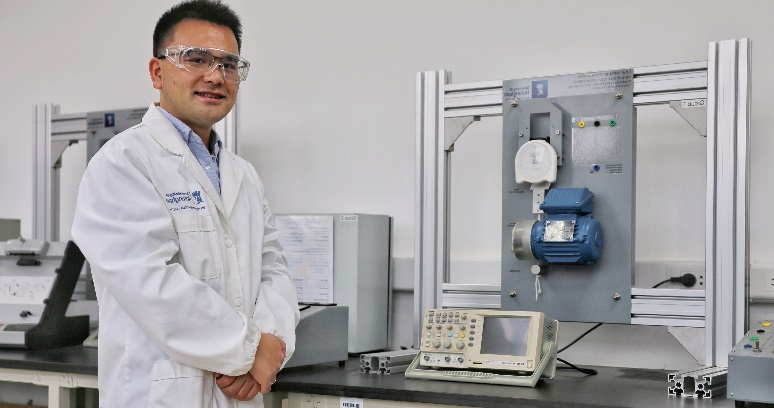
Dr Jian Yang
Associate Professor in Mechanical Engineering (Dynamics and Control)
Dr Jian Yang, Associate Professor in Dynamics and Control, his research on nonlinear dynamics and vibration engineering has also been nationally and internationally recognised. As a young researcher, Dr Jian Yang has supervised four students who received a doctoral degree from the UNNC and three of them are currently working in the top universities in China.
Dr Yang studied Naval Architecture and Ocean Engineering in Huazhong University of Science and Technology and then he obtained his PhD from the University of Southampton UK in nonlinear mechanical vibrations.
Then, he worked as a research fellow under the supervision of Professor Jonathan Cooper, FREng and previous President of the Royal Aeronautical Society, in the Department of Aerospace Engineering, University of Bristol. The work there was primarily concerned with aeroelasticity and morphing aircraft wing structures, funded by European Union Clean Sky and Framework VII projects.
After joining the University of Nottingham Ningbo China, his research focus return to more fundamental research of nonlinear vibration. He has been funded by National Natural Science Foundation of China through the ‘General Programme’ and ‘Young Scientist Schemes’.
One of his major research areas is nonlinear dynamics. Engineering structures are inherently nonlinear and nonlinearities have been exploited for enhanced dynamic performance for superior vibration suppression and noise reduction. One interesting finding is on the famous chaos phenomenon and the butterfly effect – a random-like dynamic response sensitive to the initial conditions. Dr Yang’s work has shown that by looking at the response from the energy perspective, the time-averaged energy input is actually not sensitive to the changes in the initial conditions. Therefore, energy-based performance indices can be used for the designs and performance evaluation of systems exhibiting chaotic responses.
Dr Yang holds membership in many international academic institutions and societies. For example, he is a member of RAeS (Royal Aeronautical Society), ASME (American Institute of Mechanical Engineers), AIAA (American Institute of Aeronautics and Astronautics), and IIAV (International Institute of Acoustics and Vibration). He is also a senior member of Chinese Mechanical Engineering Society (CMES) and a reviewer for many international journals. As a teaching staff in the university, he is also a fellow of the Higher Education Academy (UK), demonstrating his contribution to high quality student learning.
Dr Jian Yang is one of the most popular teaching staff in the Faculty. The module Control and Instrumentation was awarded the 2020 Provincial First-Class Undergraduate Module. He told us that his teaching experience in the UK has made a profound impact on him. Back to the time when he was a PhD student in Southampton, he was involved in the teaching of a Maths module. The students in that module need to self-study the whole content and take a progress test each week. The role of the teacher is to do the marking with the presence of the student and feedback directly on his/her work. More surprisingly, this self-paced study was very welcomed by the students there.
For most Chinese students who are used to classroom teaching, it is usually the teacher who delivers class in a one-way manner. The British Higher Education System has no doubt inspired Dr Yang about what higher education is.
University teaching distinguishes itself from high/middle school teaching by the fact that it emphasizes the acquirement of essential skills, such as independent learning, teamwork, and time management skills, not just the knowledge itself, which is evolving at a very fast pace.